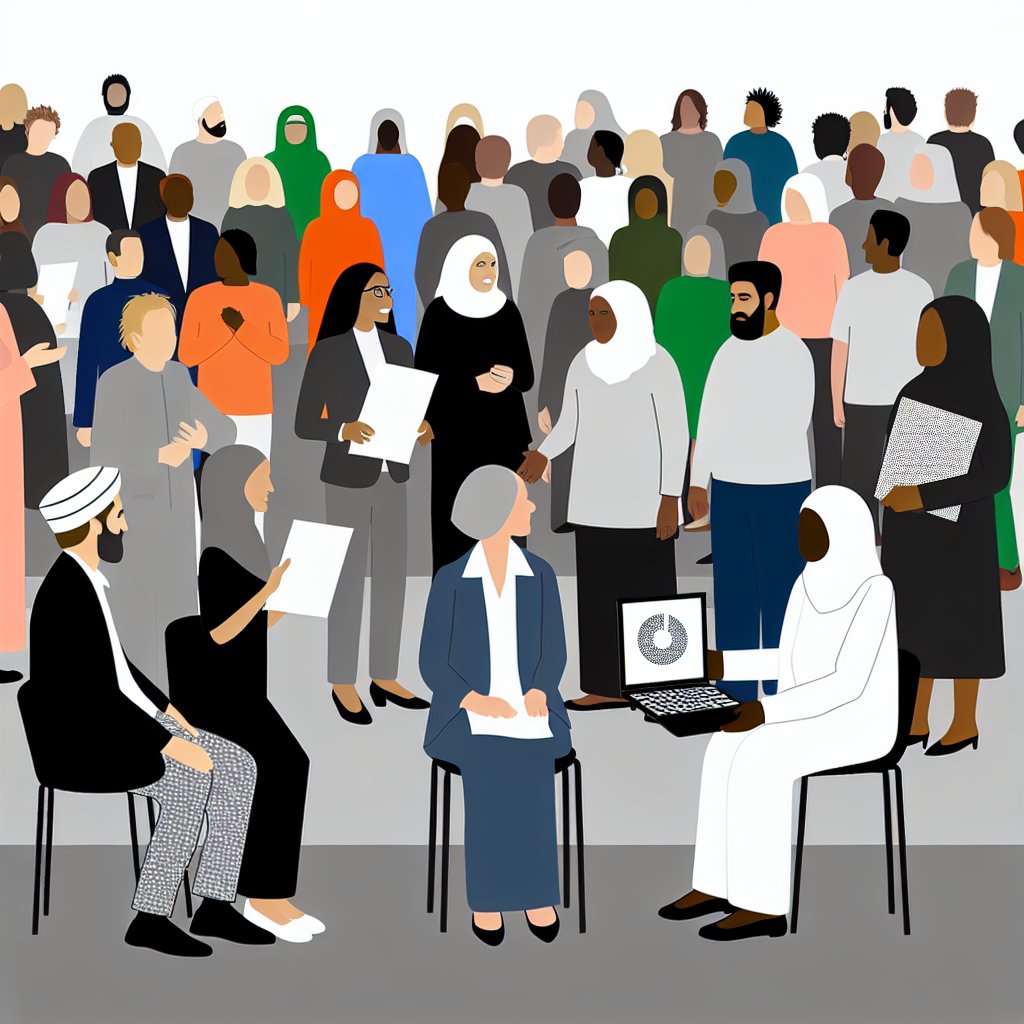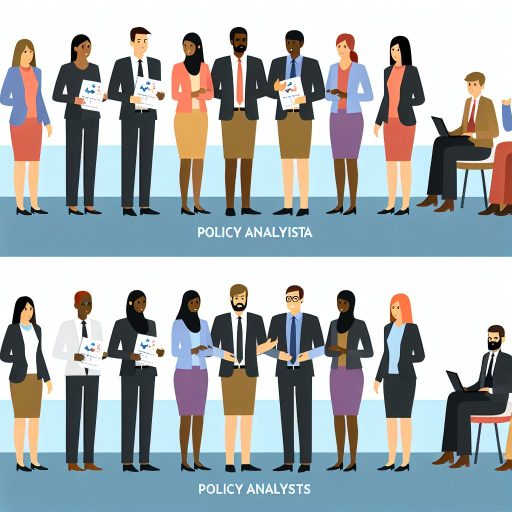Definition and Role of Community Outreach Workers in Public Service
Defining Community Outreach Workers
Community outreach workers serve as vital links between public services and local populations.
They engage directly with community members to identify needs and provide support.
These professionals come from diverse backgrounds and often possess deep knowledge of their communities.
Moreover, they build trust and foster relationships to enhance service delivery.
Key Responsibilities and Functions
- Community outreach workers educate residents about available public programs and resources.
- They assist individuals in navigating complex social, health, or legal systems.
- Furthermore, they advocate for underserved groups to improve access and equity.
- These workers also collect feedback to inform policy makers about community concerns.
- By collaborating with agencies, they help design services tailored to specific local needs.
Impact on Public Service Effectiveness
Outreach workers increase awareness and utilization of public services.
Consequently, they help reduce barriers related to language, culture, or mistrust.
They support early intervention by connecting individuals to resources promptly.
Therefore, outreach efforts lead to better community health and safety outcomes.
Ultimately, they strengthen social cohesion and empower residents to participate actively.
Key Skills and Qualifications Required for Community Outreach Workers
Effective Communication Abilities
Community outreach workers must communicate clearly with diverse groups.
They explain programs and resources in an understandable way.
Moreover, strong listening skills help them address community concerns.
They adapt their language to fit different cultural backgrounds.
Interpersonal and Relationship-Building Skills
Building trust is essential for successful community engagement.
Outreach workers create supportive connections with individuals and organizations.
Your Personalized Career Strategy
Unlock your potential with tailored career consulting. Get clear, actionable steps designed for your success. Start now!
Get StartedThey collaborate effectively with local leaders and partners.
Furthermore, empathy enables them to understand community challenges deeply.
Organizational and Time Management Skills
Managing multiple tasks requires excellent organizational abilities.
Outreach workers prioritize activities to meet community needs efficiently.
They plan events and follow up on outreach efforts systematically.
In addition, they document progress clearly for stakeholders.
Problem-Solving and Critical Thinking
They quickly identify obstacles preventing community access to services.
Creative solutions help them overcome resource limitations.
They analyze community feedback to improve outreach strategies.
Consequently, outreach workers contribute to ongoing program success.
Cultural Competency and Sensitivity
Understanding cultural differences is vital for meaningful outreach.
Workers respect diverse values and traditions within communities.
They tailor their approach to be inclusive and nonjudgmental.
Ultimately, this sensitivity fosters stronger community relationships.
Stand Out with a Resume That Gets Results
Your career is worth more than a generic template. Let us craft a resume and cover letter that showcase your unique strengths and help you secure that dream job.
Get HiredRelevant Educational Background and Experience
A bachelor’s degree in social work, public health, or related fields is common.
Many workers gain experience through internships or volunteer positions.
Continuous training strengthens their knowledge of community dynamics.
Finally, specialized certifications can enhance their professional credibility.
Technical and Digital Proficiency
Proficiency with communication tools boosts outreach efficiency.
They utilize social media to engage wider audiences effectively.
Data management skills support tracking and reporting efforts accurately.
Therefore, technological literacy is increasingly important for outreach roles.
How Community Outreach Workers Bridge Gaps Between Public Services and Communities
Building Trust Within Communities
Community outreach workers establish genuine connections with local residents.
They listen carefully to community concerns and needs.
Therefore, they earn trust and credibility over time.
For example, Maria Gonzalez works closely with neighborhoods in Eastwood.
Her empathetic approach encourages open communication.
Consequently, residents feel comfortable seeking assistance.
Transform Your LinkedIn for Maximum Impact
Elevate your professional brand with a LinkedIn profile that attracts recruiters, showcases your expertise, and maximizes opportunities. Stand out in your industry with a profile built for success.
Boost ProfileEnhancing Access to Public Services
Outreach workers help residents navigate complex public service systems.
They explain eligibility criteria in simple, clear language.
Moreover, they assist with completing necessary paperwork.
Jacob Nguyen regularly supports families in applying for healthcare benefits.
This hands-on guidance improves service uptake dramatically.
Thus, barriers such as language or bureaucracy become easier to overcome.
Promoting Inclusive Communication
These workers ensure information reaches diverse and marginalized groups.
They organize community meetings to share vital updates effectively.
In addition, they translate materials into multiple languages.
For instance, Amina Bakari helps bridge cultural gaps in ethnic neighborhoods.
She also uses social media platforms to reach younger audiences.
As a result, everyone stays informed and engaged.
Facilitating Collaboration Between Agencies and Residents
Outreach professionals act as liaisons between public agencies and communities.
They communicate community feedback to policymakers clearly.
Likewise, they explain agency initiatives back to the public.
Daniel Thompson has strengthened partnerships between social services and local schools.
These efforts create more effective and responsive programs.
Furthermore, collaboration fosters mutual understanding and respect.
Encouraging Community Empowerment
Outreach workers promote self-reliance by connecting residents to resources.
They organize workshops on skills like budgeting and health management.
Stephanie Morales runs empowerment seminars in partnership with nonprofit groups.
Such activities boost confidence and problem-solving abilities.
Ultimately, communities grow stronger and more resilient through these initiatives.
Key Roles of Community Outreach Workers
- Establish trust and open dialogue with community members
- Guide individuals through public service applications and processes
- Ensure accessible communication across different languages and cultures
- Bridge communication between agencies and residents for better policy outcomes
- Empower individuals with knowledge and skills for greater independence
See Related Content: How Public Administrators Keep Government Systems Running Smoothly
The Impact of Community Outreach Workers on Vulnerable and Marginalized Populations
Connecting Marginalized Communities to Essential Resources
Community outreach workers build bridges to vital social services for marginalized groups.
They actively engage with residents of underserved neighborhoods to understand their needs.
By doing so, outreach workers ensure vulnerable individuals access healthcare.
They also help clients obtain education and housing support.
Moreover, they facilitate trust between communities and service providers.
This trust encourages more people to seek help and utilize available programs.
Advocating for Social Inclusion and Equality
Outreach workers serve as advocates, raising awareness about systemic inequalities.
They promote social inclusion by addressing barriers faced by ethnic minorities.
They also support disabled persons in overcoming challenges.
Through community forums, they encourage dialogue and mutual understanding.
They collaborate with local authorities to influence policies benefiting marginalized groups.
Consequently, they empower these populations to participate actively in civic life.
Providing Emotional Support and Building Resilience
Many vulnerable individuals experience isolation and trauma due to discrimination or poverty.
Outreach workers offer compassionate emotional support to help clients cope.
They organize support groups where people share experiences and build networks.
Such initiatives strengthen community resilience and reduce stigma.
This empowerment fosters long-term positive mental health and wellbeing.
Enabling Access to Employment and Educational Opportunities
Outreach professionals connect marginalized individuals with job training programs.
They also link clients to educational programs to enhance skills.
They identify barriers, such as lack of childcare or transportation, and help find solutions.
By doing this, they increase the chances of stable employment and self-sufficiency.
Additionally, they work with employers and schools to create inclusive environments.
This collaboration enhances overall community development and economic growth.
Collaboration with Local Organizations and Stakeholders
Community outreach workers partner with nonprofits, healthcare providers, and government agencies.
These partnerships create a comprehensive support network for vulnerable people.
They coordinate services to avoid duplication and maximize resource efficiency.
Furthermore, they engage community leaders to strengthen program outreach and impact.
Ultimately, this teamwork leads to more effective and sustainable public service delivery.
Discover More: The Future of Public Administration: How Data Analytics is Shaping Government Jobs in Australia
Challenges Faced by Community Outreach Workers in Their Daily Roles
Managing High Workloads and Diverse Responsibilities
Community outreach workers often juggle multiple tasks simultaneously.
They must coordinate events.
They provide resources.
Maintaining communication effectively is essential.
Additionally, they address unique needs of different populations within a limited time.
Consequently, they face pressure to deliver quality services efficiently.
Time management becomes crucial to handle growing demands successfully.
Navigating Emotional and Social Strains
Outreach workers frequently engage with individuals facing hardships.
They witness emotional distress.
They see poverty regularly.
Trauma is also common in their interactions.
Therefore, workers may experience emotional fatigue or burnout during their roles.
Balancing empathy with professionalism remains a constant challenge.
Support systems and counseling resources help mitigate these emotional strains.
Building Trust Within the Community
Establishing trust is essential for effective community engagement.
Outreach workers often enter communities with historical mistrust or skepticism.
They must demonstrate respect.
Transparency must be upheld consistently over time.
By doing so, workers promote collaboration and open communication channels.
Without trust, efforts to connect and support community members may falter.
Working with Limited Resources and Funding
Community outreach programs frequently operate under tight budget constraints.
Workers have to maximize impact despite limited materials and staffing.
This shortage can restrict outreach efforts and service availability.
Consequently, they must prioritize tasks.
Creative alternative solutions become necessary.
Collaboration with local organizations often supplements resource deficits effectively.
Adapting to Changing Community Needs and Conditions
Communities evolve, and their needs shift over time.
Outreach workers must stay informed about emerging challenges and trends.
They adjust strategies and programs to remain relevant and effective.
Flexibility allows them to respond promptly to crises or policy changes.
Continuous learning and training enhance their adaptability in dynamic environments.
Uncover the Details: Data-Driven Public Service: New Roles in Australian Government Careers
The Importance of Cultural Competence and Local Knowledge in Community Outreach
Understanding Cultural Competence
Cultural competence enables outreach workers to interact effectively with diverse populations.
It fosters respect and awareness of different cultural practices and beliefs.
Moreover, it helps reduce misunderstandings and build trust within communities.
For example, Elena Vasquez, a community outreach coordinator in Brookfield, uses cultural knowledge to tailor health messages.
Consequently, engagement rates and program success improve significantly.
The Role of Local Knowledge in Outreach
Local knowledge allows workers to understand community dynamics and challenges deeply.
It includes knowing trusted community leaders, local history, and social norms.
Furthermore, outreach worker Jamal Thompson uses his local insight to identify at-risk youth in Carver County.
This knowledge facilitates targeted interventions and effective communication strategies.
Therefore, programs become more relevant and responsive to community needs.
Integrating Cultural Competence and Local Knowledge
Combining cultural competence with local knowledge enhances outreach effectiveness.
It empowers workers like Aisha Karim to create culturally sensitive programs in Milltown.
Additionally, this integration promotes inclusivity and equity in public service.
Teams trained in both areas address barriers such as language and mistrust more efficiently.
As a result, community partnerships strengthen and enduring support systems develop.
Effective Strategies to Develop Cultural Competence and Local Knowledge
Organizations should invest in training that emphasizes cultural competence and local knowledge.
Workshops led by cultural experts and local elders can provide valuable insights.
Also, encouraging outreach workers to live in or frequently visit target communities enhances familiarity.
Mentorship programs with experienced local leaders improve practical understanding.
Subsequently, these steps lead to better outcomes and sustainable community relationships.
Discover More: Your Guide to Securing a Policy Advisor Role in Australia’s Public Sector

Collaboration between Community Outreach Workers and Other Public Service Agencies
Building Strong Interagency Partnerships
Community outreach workers actively engage with public service agencies to enhance support services.
They establish clear communication channels with local health departments and social services.
Moreover, these partnerships enable efficient resource sharing and avoid service duplication.
For instance, Maya Hernandez coordinates efforts between the city’s homeless outreach team and healthcare providers.
Consequently, vulnerable populations receive more comprehensive and timely assistance.
Coordinated Response to Community Needs
Outreach workers and agencies collaborate to identify and address urgent community issues.
They conduct joint assessments to pinpoint service gaps and emerging challenges.
Additionally, partnerships with school systems help address youth behavioral health and educational barriers.
For example, Samuel Kwan works closely with juvenile justice and mental health counselors to support at-risk teens.
Thus, a unified approach strengthens the community’s overall resilience and well-being.
Shared Training and Capacity Building
Community outreach workers participate in cross-agency training sessions for better service delivery.
This training promotes understanding of diverse agency roles and strengthens collaborative skills.
Local nonprofit director Rachel Owens facilitates workshops that bring outreach staff and public officials together.
Through these initiatives, team members learn best practices for client engagement and information exchange.
As a result, agencies respond more effectively to complex social issues.
Utilizing Technology for Seamless Coordination
Agencies implement shared databases to track client needs and service outcomes.
Community outreach workers utilize digital platforms to coordinate follow-ups and referrals.
For example, the Metro Outreach Network uses a centralized case management system to streamline communication.
This technology reduces delays and improves accountability among service providers.
Consequently, community members benefit from faster and more consistent support.
Fostering Community Trust Through Collaboration
Joint efforts between outreach workers and agencies build trust among community members.
Collaborative programs demonstrate a unified commitment to public welfare and safety.
Social worker Elena Ramirez notes that integrated services encourage greater community engagement.
Furthermore, consistent interagency coordination helps reduce stigma around seeking assistance.
In turn, this leads to higher participation rates in support programs and improved social outcomes.
Success Stories and Case Studies Demonstrating the Effectiveness of Community Outreach
Empowering At-Risk Youth Through Neighborhood Programs
The nonprofit organization Rising Horizons launched a youth mentoring initiative in Detroit.
Community outreach workers connected with vulnerable teens facing academic challenges.
They organized after-school tutoring and life skills workshops.
As a result, graduation rates within the target group increased by 30% over two years.
Moreover, participants reported improved self-confidence and goal-setting abilities.
This success highlights the critical role outreach workers play in youth development.
Improving Public Health in Rural Communities
HealthLink Partners deployed outreach workers to remote areas in Appalachia.
The focus was on educating residents about diabetes prevention and care.
Outreach teams conducted home visits and community health fairs.
This approach significantly increased access to health screenings and resources.
Consequently, early diabetes detection improved by 25% across participating counties.
In addition, patients reported greater adherence to treatment plans.
This case study proves how outreach workers effectively bridge healthcare gaps.
Enhancing Economic Opportunities for Immigrant Families
The Global Roots Initiative supports recent immigrants in the Chicago metropolitan area.
Community outreach workers offer job training, language classes, and legal assistance.
They collaborate closely with local businesses and social service providers.
Following these efforts, over 500 families secured stable employment within a year.
Furthermore, participants noted improvements in financial stability and social integration.
These outcomes underscore the value of culturally competent outreach programs.
Reducing Homelessness Through Coordinated Outreach Efforts
CityHope Collaborative initiated a street outreach campaign in Portland.
Trained outreach workers engaged individuals experiencing homelessness daily.
They connected people to shelter, healthcare, and employment services.
Within 18 months, over 200 individuals transitioned into permanent housing.
Additionally, many clients accessed mental health counseling and substance abuse treatment.
This demonstrates the power of persistent outreach in addressing homelessness.
Key Elements of Successful Community Outreach Programs
- Strong relationships between outreach workers and local residents.
- Collaboration with diverse stakeholders and service providers.
- Culturally sensitive and tailored programming.
- Consistent follow-up and support beyond initial contact.
- Focus on measurable outcomes to track progress.
These case studies show that community outreach drives meaningful public service results.
Future Trends and Opportunities in the Field of Community Outreach Work
Technological Advancements Enhancing Outreach Efforts
Community outreach workers increasingly use technology to connect with diverse populations.
Mobile apps enable real-time communication and resource sharing.
Virtual meetings expand reach beyond geographic limitations.
Artificial intelligence helps tailor programs to specific community needs effectively.
For instance, workers like Elena Ramirez leverage data analytics to improve service delivery.
Expanding Roles and Collaborative Opportunities
The role of community outreach workers continues to evolve in public service sectors.
They collaborate closely with healthcare providers, schools, and law enforcement agencies.
Such partnerships improve holistic support for vulnerable groups.
Furthermore, organizations like the Maplewood Outreach Alliance create cross-sector alliances.
These collaborations open new opportunities for funding and program development.
Focus on Cultural Competence and Inclusion
Future outreach efforts emphasize cultural competence to serve diverse communities better.
Training programs prepare workers such as Aisha Patel to address language and cultural barriers.
This focus ensures equitable access to services across all demographics.
Community-based organizations prioritize inclusivity in program design and execution.
Therefore, outreach becomes more effective and respectful of community values.
Professional Development and Career Growth
Community outreach careers offer increasing opportunities for skill advancement.
Workshops and certifications help workers acquire expertise in mental health and crisis intervention.
Leaders such as Jordan Liu promote mentorship programs within the field.
Additionally, employers value adaptability and digital literacy in outreach candidates.
These trends support long-term career sustainability and leadership potential.
Increased Funding and Policy Support for Outreach Work
Governments and nonprofits recognize the vital impact of community outreach efforts.
This recognition leads to greater allocation of resources and supportive policies.
Initiatives like the Horizon Social Services Fund provide targeted grants.
Such funding boosts capacity for community education, prevention, and advocacy work.
As a result, outreach professionals gain more tools to address emerging social challenges.
The Role of Community Outreach Workers in Crisis Management and Emergency Response
Providing Immediate Support and Resources
Community outreach workers respond swiftly during emergencies to assist affected individuals.
They distribute essential supplies such as food, water, and medical kits directly to communities.
Moreover, they connect residents with shelter and healthcare services promptly after a crisis.
These workers also provide critical information to help people stay safe during emergencies.
Consequently, they alleviate panic and confusion in vulnerable populations.
Facilitating Communication Between Authorities and Communities
Outreach workers serve as crucial links between emergency responders and local residents.
They relay accurate information from agencies to ensure clear understanding of evolving situations.
In addition, they gather community feedback to inform response efforts effectively.
This two-way communication improves trust and cooperation during crises.
Ultimately, it ensures that emergency plans address the real needs of the affected areas.
Supporting Vulnerable Populations During Emergencies
Community outreach workers identify and assist individuals with special needs in crisis zones.
They focus on elderly, disabled, and non-English speaking residents who require extra support.
By coordinating with social services, they facilitate tailored aid for these groups.
Additionally, they help bridge cultural and language barriers in diverse neighborhoods.
This targeted assistance enhances the overall effectiveness of emergency responses.
Building Long-Term Community Resilience
Beyond immediate response, outreach workers engage in preparedness education before disasters occur.
They organize training sessions and workshops on emergency planning and safety.
Furthermore, they promote community networks that strengthen local support systems.
These efforts empower residents to respond confidently in future crises.
Therefore, outreach workers play a vital role in fostering sustainable community resilience.
Collaborating With Various Emergency Response Teams
Community outreach workers coordinate with fire, police, and medical teams during disasters.
They assist in rapid needs assessments to prioritize resource distribution.
Their local knowledge enhances the efficiency of response operations on the ground.
Moreover, they participate in multidisciplinary planning to improve emergency protocols.
This collaboration maximizes the impact of public service interventions in crises.
Additional Resources
The Role of Public Health and Partnerships to Promote Eye and …
Unlocking authentic community power: Rethinking public service …




